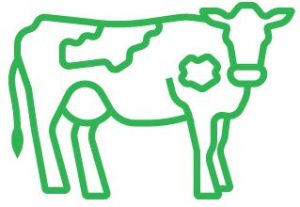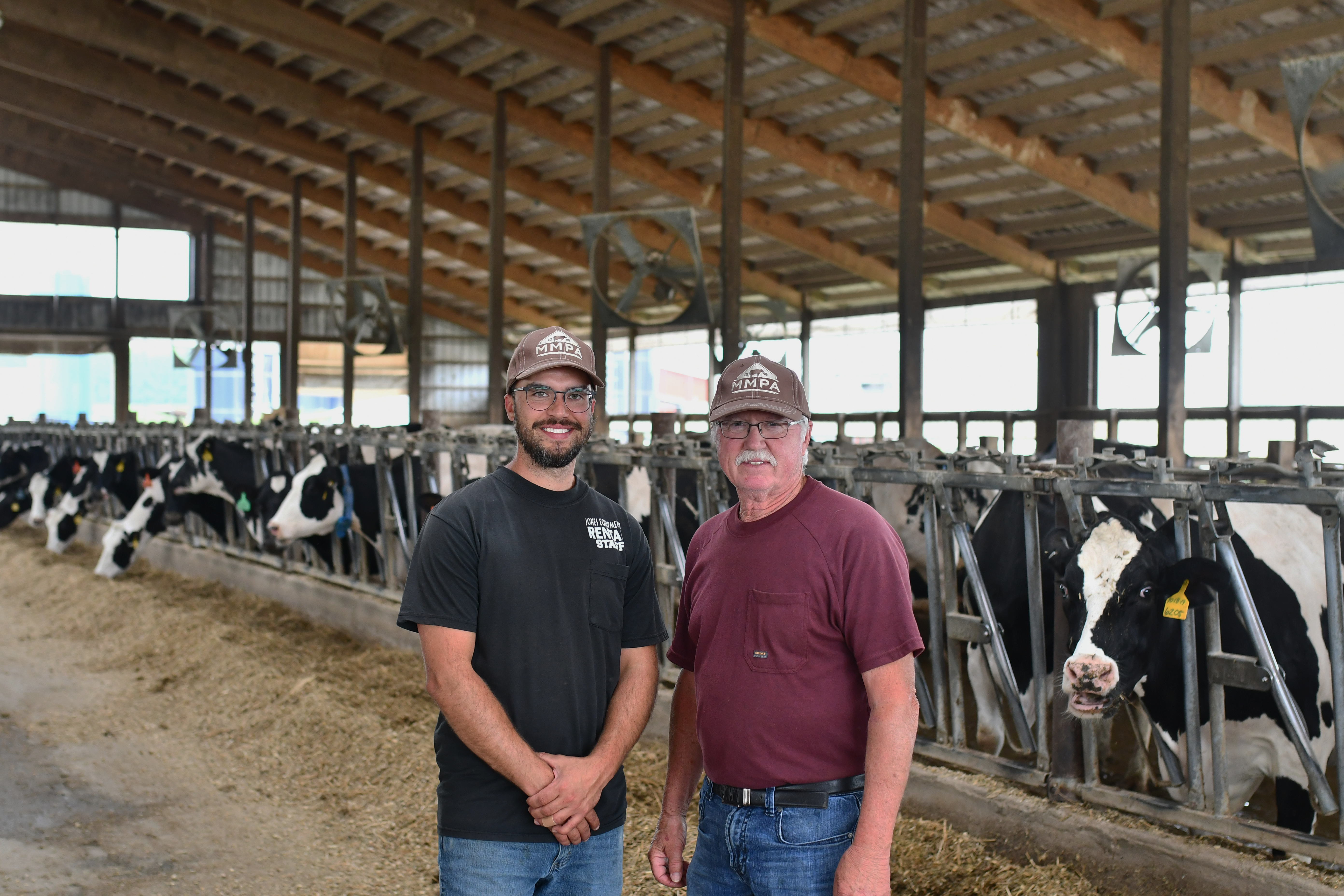MMPA is committed to cooperative social responsibility and sustainable business practices throughout our entire supply chain. At the farm level, MMPA members are also on a sustainability journey. We’re checking in with a handful of member farmers leading the charge with this sustainability spotlight series.

Preserving our environment is what drives Reid Dairy Farm to be sustainable. “Our job is to protect and prepare the environment for the next generation, so we want to make sure we leave the land as good or better than the way we found it,” Jim Reid owner of Reid Dairy Farm in Jeddo, Michigan.
Jim intends to pass this multi-generational farm to his son, Jeff Reid. Their openness to adopting innovative sustainability practices has been key to ensuring profitability on the dairy.
When approached by DTE Energy in 2010, they took advantage of capturing solar rays for energy conversion and installed 96 panels on the roof of their milking barn. “They pay me for every kWh that I generate when I’m not milking. When the sun is out and the parlor isn’t in use, it’s generating electricity that’s going back on the grid.” The panels provide the dairy with 20% of their energy needs throughout the year.
In addition to utilizing solar panels for a renewable energy source, the Reid’s have focused on improving their energy efficiency by installing a variable speed vacuum pump, investing in a larger plate cooler and using all LED lights in the barns. Next on the agenda is installing thermostats on the fans to make an even bigger reduction in their farm’s energy usage.
Along with energy conservation, the Reid’s have experimented with their feed ration to incorporate a new feed additive product, Agolin, that is both reducing their enteric emissions and positively impacting their component values. Like other feed additives focused on reducing cows’ carbon impact, Agolin was created with the intention to optimize feed intake and gut health for livestock.
“We’ve been using the Agolin feed additive for two years now, and ever since my components have held at that 4% butterfat level and the protein at 3.35%,” Jim said. “Even in the heat of the summer, when we have a heat stress period, the cows seem to recover quicker.”
The Reid’s focus on finding efficiencies in their herd’s diet also includes providing a sustainable food source through incorporating carbon sequestration practices in their cropping strategy every year.
“We try to balance agronomy and environmental practices. The last few years we’ve done very little fall tillage,” Jim said. “For the soybean crop, we don’t till at all so that we’re not stirring up the soil and releasing the carbon into the atmosphere.”
As someone who has farmed their whole life, Jim has plenty of experience under his belt. “I was with my dad all the time and I was up on the tractor when I was probably three years old.”
The practices have changed over the years and now he’s focused on bringing on the next generation.
“I’ve learned through the years that when a problem occurs, which it seems like happens daily, I don’t get too upset about it, I just sit back and think of a solution.” Often, for the Reid’s, that solution is grounded in finding a better way to steward the land so they can continue farming for many more generations.
Renewable Energy: Energy derived from wind, solar, renewable biomass, ocean, geothermal or hydroelectric source, or hydrogen derived from renewable biomass or water. Solar panels, or solar collectors, are devices that absorb and accumulate solar radiation for use as a source of renewable energy.
Carbon Sequestration: Carbon sequestration is the process of capturing, securing and storing carbon dioxide from the atmosphere. The idea is to stabilize carbon in solid and dissolved forms so that it doesn’t cause the atmosphere to warm. On farms, carbon is sequestered in soil by plants through photosynthesis and can be stored as soil organic carbon.
Sources: United States Department of Agriculture; University of California, Davis

FARM
Reid Dairy Farm, LLC
Jeddo, Michigan

HERD
225 milking

LAND
800 acres of corn, alfalfa and soybeans

VERIFICATIONS
MMPA Sustainability Survey, Comprehensive Nutrient Management Plan, FARM* Animal Care, MAEAP Cropping, Livestock and Farmstead
This article was originally published in the July/August 2023 issue of the Milk Messenger. Subscribe »

